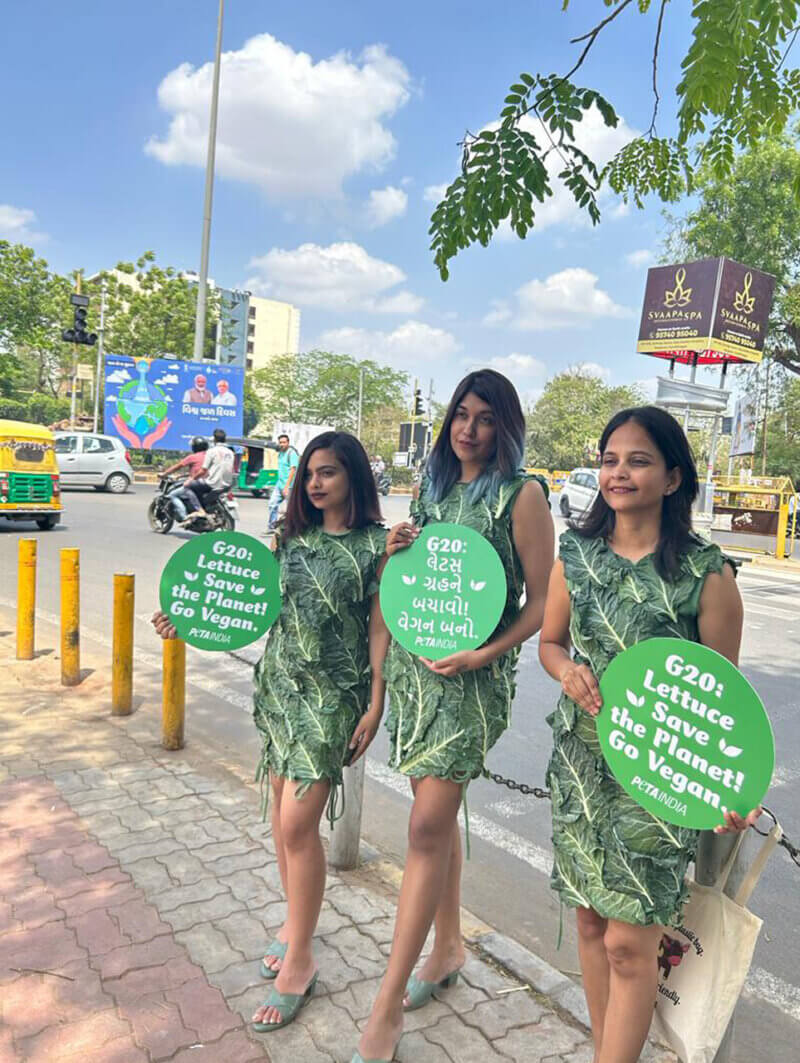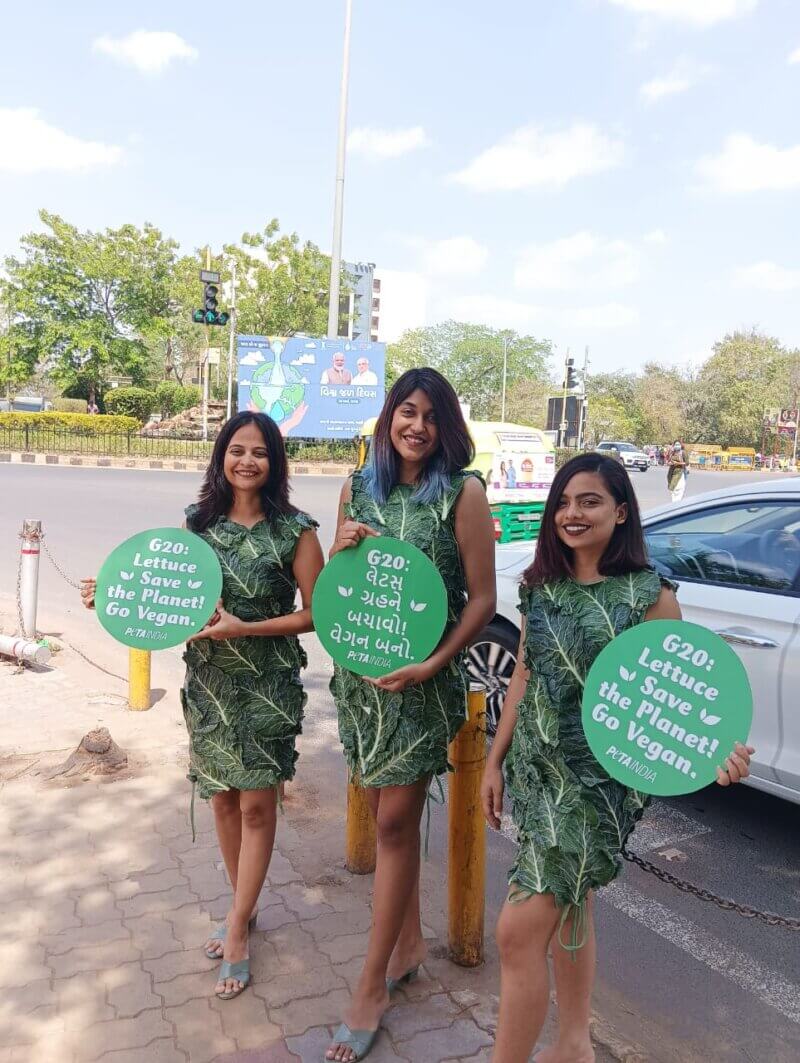PETA India ‘Lettuce Ladies’ Push for Vegan Eating to Tackle Climate Catastrophe in Lead Up to G20 Meeting
On 24 March, PETA India and Vegans of Gujarat’s “Lettuce Ladies” took to the streets of Gandhinagar in dresses made of vegetables in the lead up to the G20 Environment and Climate Sustainability Working Group, which will meet in the city from 27 to 29 March. The trio urged passers-by that going vegan is the single most effective way individuals can slash their carbon footprint, combat deforestation, and reduce pollution. Vegans are vegetarians who are also dairy-free and eat wholly plant-based foods.
According to the Food and Agriculture Organization of the United Nations, meat, egg, and dairy production is responsible for approximately 18%, or nearly one-fifth, of human-induced greenhouse gas emissions. And according to the University of Oxford, eating vegan can reduce an individual’s food-related carbon footprint by up to 73%. Vegan foods – such as fruits and vegetables, whole grains, beans, peas, nuts, and lentils – also require less energy, land, and water to produce.Of course, vegan eating helps animals, too. As PETA India reveals in its video exposé “Glass Walls”, chickens used for eggs are confined to cages so small they cannot even spread a wing. Cows and buffaloes are crammed into vehicles in such large numbers that their bones often break before they’re dragged off to the slaughterhouse, and pigs are stabbed in the heart as they scream. On the decks of fishing boats, fish suffocate or are cut open while they’re still alive. Newborn male chicks are ground up, burned, or buried alive in the egg industry since they cannot lay eggs, while male calves in the dairy industry are commonly abandoned, left to starve, or killed since they cannot produce milk.
If we don’t stop consuming meat, eggs, and dairy, the planet won’t stand a chance and neither will we.







